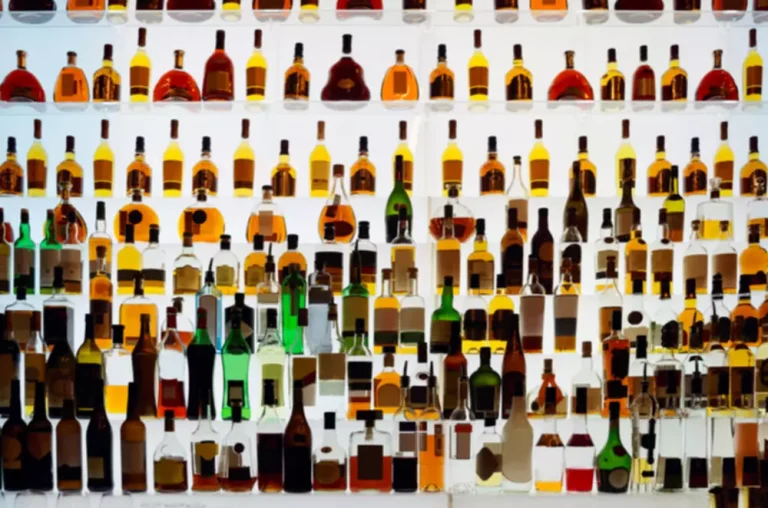The Impact of Alcohol on the Brain Neurobiology of Brain Involvement

Therefore, strategies that promote healthy dopamine function, such as engaging in rewarding activities, maintaining a balanced diet, and getting regular exercise, can contribute to overall brain health and potentially reduce the risk of substance use disorders. When comparing alcohol’s dopamine effects to other substances, it’s important to note that while alcohol does increase dopamine levels, its effects are generally less intense than those of many illicit drugs. For instance, cocaine and amphetamines cause a much more dramatic spike in dopamine levels. However, alcohol’s legal status, social acceptance, and widespread availability make it a significant concern from a public health perspective.
for your personal use

Another approach, motivational interviewing (MI) is another helpful approach for ambivalent individuals about treatment. MI involves guiding individuals through their motivations and goals, helping them see the benefits of reducing or quitting alcohol. Both CBT and MI offer tools to understand and manage the emotional and psychological aspects of addiction, promoting long-term recovery. Slowly over a period of time, the person craves more of the drug, to achieve the same kind of high as earlier. He thus starts consuming more and more alcohol until a point comes when normal brain chemistry simply cannot function without alcohol.
Dopamine’s Role in Behavior
In line with the hypothesis that a partial dopamine D2 agonist would block the reinforcing effects of alcohol, aripiprazole attenuates alcohol’s ability to increase the locomotor activity in mice 178, 179(an indirect measure of activation of the mesolimbic dopamine system). On the other hand, aripiprazole did not interfere with the alcohol‐induced impairment in motor balance as measured by rotarod test 179. Furthermore, repeated systemic aripiprazole administration decreases alcohol intake in alcohol‐preferring rats 180, while single oral administration dose‐dependently decreases alcohol self‐administration in outbred rats 181. In addition, aripiprazole has been shown to reverse alcohol‐induced place preference and anxiety‐like behaviour in mice 182. There is a strong link between dopamine deficiency and depression, particularly in individuals with alcohol dependence. As the brain’s dopamine production decreases, feelings of sadness, hopelessness, and lack of motivation can intensify, making it difficult for individuals to break free from the cycle of alcohol abuse.
- Remember, the journey to recovery is deeply personal and can look different for everyone.
- Many people experience fluctuations in their mood and energy levels as their brain chemistry stabilizes.
- I would like to acknowledge my faculty at Amity Institute of Biotechnology, Dr. Manju Pathak for her unwavering support and encouragement in writing this review paper.
- The effectiveness of current attempts to prevent and treat alcoholism is quite low.
- This section highlights various ways to restore dopamine balance, both naturally and through medical treatments.
How to Have Your Booze and Drink It, Too

The mesocortical system also originates primarily in the A10 cell group and affects various regions of the cerebral cortex. While alcohol is a relaxant and can make you feel good at first, chronic alcohol use can cause mental health issues. “Generally, over time, there have been new studies that show that chronic alcohol use — at very heavy use — can Twelve-step program lead to brain damage, both gray and white matter.
- For example, some individuals in long-term recovery report lasting changes in how they experience pleasure or respond to stress.
- These findings support the extensive clinical findings demonstrating that alcohol‐dependent individuals have significant impairments in executive functions such as working memory, impulsivity and decision‐making; functions governed by the cortical brain structures.
- However, this harmonious relationship between dopamine and alcohol doesn’t last long.
- Patients were instructed to take one tablet on days when they perceived a risk of drinking alcohol.
Nicotine’s Long-Term Effects on the Brain: Dopamine Release and Cognitive…
However, chronic alcohol use can lead to dopamine depletion and receptor desensitization, potentially contributing to addiction and various health issues. Individual variations, including genetic factors and drinking patterns, can significantly influence how alcohol affects dopamine function in different people. Given the central role of dopamine in alcohol addiction, researchers are exploring potential treatments targeting the dopamine system for alcohol use disorders. Some approaches under investigation include medications that modulate dopamine function, such as dopamine receptor agonists or antagonists. Other strategies focus on enhancing natural dopamine production through lifestyle changes, including exercise, nutrition, and stress management techniques.
- These effects can happen even after one drink — and increase with every drink you have, states Dr. Anand.
- Some states have higher penalties for people who drive with high BAC (0.15 to 0.20 or above) due to the increased risk of fatal accidents.
- Although there exists promising preclinical results, the majority of placebo‐controlled randomized clinical trials with traditional dopamine antagonists and agonists have so far have been discouraging.
You May Better Support Your Immune System

This leads to increased consumption, and over time, the brain’s dopamine system becomes desensitized. As a result, people often drink to avoid withdrawal symptoms rather than to feel pleasure. For those embarking on or continuing their journey to sobriety and balanced dopamine levels, take heart in the knowledge that every day of sobriety is a step towards healing. https://ecosoberhouse.com/ With time, support, and healthy lifestyle choices, it’s possible to restore balance to the brain’s reward system and experience the full richness of life without alcohol. In conclusion, while that cocktail might indeed provide a temporary dopamine boost, understanding its broader impacts on brain chemistry can help us approach alcohol consumption with greater awareness and responsibility. By respecting the complex relationship between alcohol and our brain’s reward system, we can make more informed choices about our drinking habits and overall health.
We then describe evidence-based treatments you can recommend to patients to help the brain, and the patient as a whole, to recover. Into Action is an addiction treatment center specializing in personalized treatment for drug and alcohol abuse, conveniently located in Houston, Texas and led by experienced master’s level counselors and medical professionals. Into Action Recovery Centers provides an abstinence-based program and all of our staff members have a strong understanding of the recovery process through personal experience. We are passionate about sharing the process involved in living a drug and alcohol-free life. We offer free aftercare for the men who complete our program and have a strong alumni network that remains active in the community. We also offer other amenities such as dietician-prepared meals, mindfulness-based meditation training, outings, and fitness training.
What Happens to Your Body When You Stop Drinking Alcohol
The mechanisms involved behind alcohol sensitization, tolerance, withdrawal and dependence are discussed in the following sections. It doesn’t alcohol and dopamine carry the same kind of stigma or social abhorrence which other drugs of abuse such as cocaine, methamphetamines, lysergic acid diethylamide (LSD) etc., carry. Alcohol is widely accepted in the society and consumed by everyone, young and the old alike, women and men included. In some societies, alcohol consumption is even accepted as part of normal social etiquettes. Alcohol is thus, all pervasive and is in this way is the most dangerous drug known to mankind. It’s crucial to remember that dopamine receptor recovery is a gradual process that requires patience and persistence.
- The study by42 found conflicting results for male and female subjects, with female subjects showing AD only on the basis of alcohol disorder.44 In their study of alcohol-dependence in Polish population reported negative association between Taq1A allele and AD.
- Previous research about the neurobiochemisty of alcohol dependence has focused on the DA system, but many of the findings have been contradictory.
- On the other hand, newer dopamine agents, without complete antagonism or agonism, especially the dopamine stabilizers show promise and deserve further investigation in alcohol‐dependent patients.
- Clinical Pearl – Only 20% of patients may show the full triad in clinical practice.
- To understand the gut the day after you indulge, we need to go back to the brain.
Melody is here to lend you as you adjust to a life with less (or no) alcohol. Every month, we launch fun challenges, like Dry/Damp January, Sober Spring, and Outdoorsy June. You won’t want to miss the chance to participate alongside fellow Reframers (or solo if that’s more your vibe!).